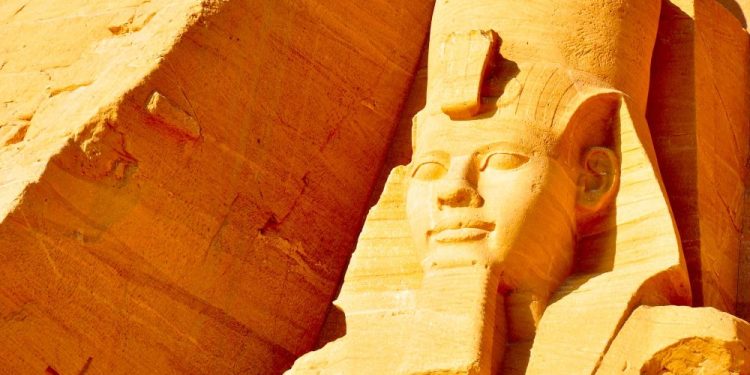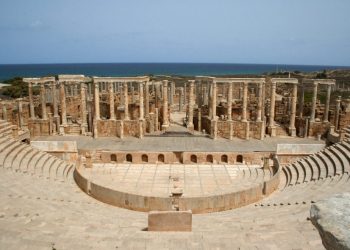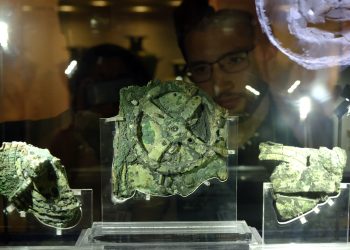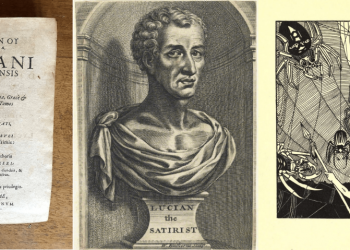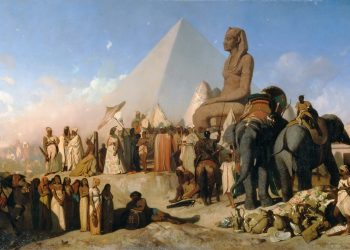When it comes to the history of the human race, it is more than essential to understand that, regardless of the primary and the secondary sources that exist, historians have their views about the importance of certain people and their work for the modern world. Nonetheless, people had entirely neglected the leaders and rulers of antiquity, who were able to leave their ‘mark’ on the evolution of civilization and the contemporary world nearly two millennia ago.
This article presents the ten most influential figures from the ancient world before Christ (BC), explaining their impact on the evolution of the human race and their role in the contemporary period.
By writing this article, I completely understand that there might be some disagreements with the figures of my choice. Please be reminded that although I provide an objective explanation for every person, this is mainly an opinion article since history is not a straight line. There might be many variations between the choice of two distinct people, the writer and the reader.
10 of the Most Influential Figures in Ancient History Before Christ
The historical theory is how we can make sense of and understand what happened in the past; it is an accurate retelling of facts and particular narratives. There is no way of presenting objective facts. When someone tries to think historically, there is a framing of events by character bias. Before starting with the analysis, I would also like you to be reminded that the order in which the presentation occurs does not entail any implication about an extent of a more or less significant figure.
Ramesses the Great (1303 BC — 1213 BC)
Ramesses II, although he was the third pharaoh in the Nineteenth Egyptian Dynasty, he is regarded as the most important, most powerful, and most influential pharaoh. That is not only because of his military power and his dominant stance but also his significant contribution to the New Kingdom of Ancient Egypt.
Ramesses was the leader that not only reasserted control over crucial territories that had been independent for a while but established a significant part of the Egyptians’ universal culture around cities, temples, and monuments. He is referred to as the “Great Ancestor” because he dedicated his life to raising awareness for Egyptian financial and military power, cultural and linguistic aspects, and the spirit of the people.
I am confident that Ramesses is not a well-known person to an equal extent as Alexander the Great or Socrates, the people analyzed below. This occurs because he was centuries older than these figures, and there are not enough sources to show the significance of his reign. Nonetheless, there is more than enough archeological data regarding the Egyptian civilization as a whole and, more specifically, the pharaoh culture, to which Ramesses is probably the best representative.
Alexander the Great (356 BC — 323 BC)
Alexander III of Macedon was the son of Philip II, and at the beginning, he became known as the king of the ancient Greek Kingdom of Macedon. Philip II was assassinated for mysterious reasons, and Alexander III inherited the throne in a time of instability. It was only a matter of time before Alexander conquered the southern cities of Greece in Sparta, Athens, and Thebes.
Alexander was planning a Panhellenic campaign against the Persians, and his goals were also to free the Greeks of Asia. However, after the win in the Granicus River in 334 BC, which was the point of access to the Asian territories, Alexander discovered a way of conquering the whole Persian empire.
The campaign is not the only reason Alexander is such an influential figure. Still, the empire’s culture was cultivated, and the Mediterranean ideology would be valuable for the rest of centuries to come. The way of achieving financial wealth and the culture of worshiping a divine power that he advocated, mainly in Asian territories such as Babylonia and Syria, was a starting point for these Asian cultures. It is even more significant to understand that he rebuilt the cities to indicate that he was not a violent conqueror but someone who wanted to control the Mediterranean world so he could work for its well-being.
The military approach and many other ways of organizing the conquered communities would be a model for the rest of the ancient empires. Many structural factors of the society he had determined stayed ‘alive’ for numerous centuries to come. He was also one of the first leaders that showed how unity and faith could win many battles while also how becoming greedy could change this power and destroy even the greatest empires of history.
Although Alexander’s troops were exhausted, he pushed for additional expansions in the East. While the objective was to reach India, this greed led to the severe defeats of the Asian forces and significant revolutions met by Alexander’s death in 323 BC.
Julius Caesar (100 BC — 44 BC)
This is probably one of the few characters in the list widely known for the actual reason he should be known; the creation of the Roman Empire. Although he was born centuries after the original date of the Roman Republic, he was one of the most crucial figures that led to its instability and the rise of the empire.
Once again, his importance in creating the empire should overshadow his inherent ability of excellent military command and a powerful stance as a general, which led to the critical military victories in the Gallic Wars that extended the Roman territory, even before the creation of the empire. Politically, he was the most dominant politician during his time, and this is underlined from his appeal to the plebeians of the Roman Republic. Once they supported him and his two allies, Marcus Crassus and Gnaeus Pompey, they created an alliance named the First Triumvirate.
The alliance was a way of better organizing the republic, but once Crassus died, Pompey sided with the aristocrats, and Caesar continued the representation of the plebeians. As it was apparent, they faced each other, and the win of the latter let him acquire the unchallenged power that he had always aspired.
This was a way of completely changing the government, the senate, the social institutions, the land organization, and in general, he altered every single part of the republic to convert it into his dream of a Roman Empire (which he sure did). His reforms and the complete territorial and power domination in the Mediterranean and the Asian world stayed ‘alive’ for half a millennia.
Cleopatra (69 BC — 30 BC)
After Alexander the Great’s death, the empire he had created during his reign was divided into four Hellenistic states: the Seleucid Empire, the Kingdom of Pergamon, Macedon, and the Ptolemaic Kingdom of Egypt. The transformation of the roman republic to a Roman Empire determined the dominant power of the Mediterranean, with most of the kingdoms having to accept the outcome.
One kingdom that had such a valuable history and developed faith that did not permit it to be surrendered to the Romans was the Ptolemaic kingdom. The most historical and influential leader was Cleopatra. The Ptolemy dynasty was the last state that resisted Roman dominance.
It was pretty impressive to see that not only the Egyptians were ahead of time. In a world of male dominance, a woman had taken over and commanded the government with the military, but her independent spirit was not the only thing that was of value. She managed to change the view of the ruler and the simple people in Egypt since she adopted a more empathetic relationship with the subjects, which led them to consider her strong influence.
Another substantial milestone for the most significant woman ruler of the ancient world is that she was the commander that the Roman military could not attack successfully. Her death ended the age of Hellenistic empires and asserted the beginning of Roman superiority in the Mediterranean.
Caesar Augustus (63 BC — 12 AD)
Although I have awarded the title of the person who has created the Roman Empire to Julius Caesar (and rightfully so), the man who made the most crucial amendments and capitalized on the road to global dominance that Julius Caesar had opened was Caesar Augustus. He is considered the founder of the Roman Principate. Although his ancestors settled the Empire’s issues through force and war, his reign signified the beginning of the Pax Romana (Roman Peace), a two-century-long period of peace, prosperity, stability, and correct reforms.
A completely different article could be written on his conquers and successful campaigns, which enlarged the Empire. Regardless of the civil Augustan peace, he managed to annex great cities like Egypt, Dalmatia, Africa, and Hispania. The year was 30 BC, and one man controlled the world. The presentation of the Roman regime in historical evidence and works such as The Res Gestae indicates that Augustus was a savior of the republic.
He presents himself as an ordinary senator when he talks about his regime. He knew that saying that he was a dictator would be wrong, so he just stated that he was one of the best senators. Nonetheless, he was the prominent leader of the transformation in the political sector and the social reforms that resulted in people from all over the world not battling against the Romans but intending to become a part of the Empire.
The last tiny detail that might help you understand his immediate impact on the Roman community was that his original name was not Caesar Augustus. His original name was Gaius Octavius, but the people wanted to give him a new name because he was exceptional. They changed the name to Imperator Caesar Divi Filius Augustus. The title for this man as a new position is not emperor, but he gets the title Princeps = the first citizen. This is the start of the new monarchy, a restored “Republic,” and the title of the Julius family in his name was an honor that only a leader of this magnitude could have.
Hannibal (247 BC — 181 BC)
During the years of the Punic Wars between the Carthaginians and the Romans, one of the most efficient commanders in human history made a name for himself. The military commander of the Carthaginians by the name of Hannibal Barca, was taught from a young age to hate the Romans, which drove him to develop a tremendous Phoenician military and resist the conquer of the Romans.
He managed to build strategies that continued his father’s vision, the military commander in the First Punic War, but this was the first time after many decades in which the Romans felt threatened. Historians have argued that he was one of the best strategic commanders in human history. I would go as far as to say that he was the best tactician in ancient Mediterranean history.
The difference between Alexander the Great and Julius Caesar was that Hannibal was not well and widely known. Still, he also built a force on his own, making it capable of resisting the ultimate power of the Roman Republic. His strategies had been adopted by the Napoleonic troops, the Ottoman, and the modern Russian empire, which indicates Hannibal’s impact as a military commander.
Cyrus the Great (600 BC — 530 BC)
It would not be equitable to write a list without creating the Persian empire, the most dominant force in the Asian world during the mid-centuries of the last millennium BC. The man responsible for creating such a force was originally Cyrus the Great, Cyrus II of Persia.
Most of the military commanders and leaders of the subsequent centuries understood that an empire could not be powerful if the conquered cities were violently organized and their cultures are destroyed. This is a lesson that Cyrus gave when he built the Persian or originally Achaemenid empire after embracing the previous states of the Near East, Western Asia, and conquering Central Asia.
Until this point, after he conquered the Median, the Lydian, and the Neo-Babylonian empire, the world had not seen such enormous power. Although he was planning the expulsion in the Mediterranean world and the Balkans, he died around 530 BC in an Iranian battle. Cyrus even appears in the Bible as the liberator of the Jews captive in Babylonia, which indicates the ideal legacy he acquired.
Tiglath-Pileser III (8th Century BC — 727 BC)
The Assyrian Empire (850–605 BCE) managed to survive despite kingdoms as the Egyptians faced collapse since the Iron Age was destructive. The Assyrians had dominated large territories of the Mediterranean world. A reason for such a strong military and resistance against the Egyptians was the king named Tiglath-Pileser III (for whom we don’t have an exact date of birth), who established the most significant acquisitions the empire would ever witness.
More specifically, he managed to make the most out of the West of the Asian world, annexing Phoenicia, Syria, and Damascus. That was mainly the result of his actions, which started from creating the first professional standing army for Assyria and resulted in the government’s reforms and security, which led to further expansion.
At the Assyrian expansion, the people had not fully discovered the ancient world, and the troops were unaware of territories outside the Near East region. Nonetheless, Tiglath-Pileser conquered the south Mesopotamians, the west Israelis, the north Armenians and Syrians, and much of the Mediterranean. The Assyrians had a solid reason to believe that they were ‘on top of the world.’ The collapse of the empire decades later after the death of Tiglath is indicative of his impact as a ruler.
Leonidas I (540 BC — 480 BC)
Leonidas is the only leader on the list that is justifiably honored and deserves his place, even without having a history of establishing a dominant world empire. He deserves to be on the list more for a legendary and unique place in the cultural and legacy aspects of the Spartan world.
Evidence has shown us that one of the most ruthless cities in human history was the Spartans, fostered during the reign of Leonidas as the Spartan King. It is a true statement that they were not afraid of anyone, and regardless of the enormous number of military troops that they were called to fight, they were willing to die on the battlefield to protect their city.
This spirit of collectivity, courage, and self-sacrifice came from Leonidas and, more specifically, from the Battle of Thermopylae. This was a battle during the Greek-Persian wars, where Leonidas had an army of 4,000 Greeks and Xerxes had a Persian army of 80,000 people from a different origin. The disgrace that the Spartans would feel if they got back to Sparta defeated was against their values, and even though the rest of the Greeks left, 300 Spartans with Leonidas as the leader stayed in the region to sacrifice themselves so the Greeks would have more time.
The quote of Spartans “either coming with their shield or coming back on it” is best described by the figure of Leonidas. The battle with the Persians showed the successors that these were the values a Spartan should cultivate.
Pericles (495 BC — 429 BC)
Last but not least, it would not be a quality list without the addition of the Athenian empire and the man that started this whole history, which remains up until this day, Pericles. He was the leader and the creator of the Athenian golden age, when the city flourished financially, socially, democratically, and militarily. According to Thucydides, Pericles was the first citizen of democratic Athens. He was the one that transformed the whole community into the regime that has dominated the world until the modern era.
Pericles is the prominent leader of the Athenian city, but he is also a historical figure that deserves to be honored as the best Greek leader, not only Athenian. That is because he transformed all the Athenian alliances into a Greek empire that would, later on, win crucial battles and build the structure for the Western democratic civilization.
The only unfortunate event is that Pericles was the main one that had worked more toward building such a democratic empire. Still, when he died, the Athenians were at war with the Spartans, and he did not see his work being finished or completed. That is why Pericles did not leave behind a great empire or a power that could take over the ancient world. Still, even as an Athenian general, he provided the roots of democracy and unity, and he has to be honored until today.
Before the beginning of the centuries AD, although we do not have as much evidence as after the new period, the sources show that the ancient world was filled with figures that would influence humanity for centuries and even millennia. People did not practice negotiations as often, and the empire’s power was portrayed by the extent of the army and the leader’s ability.
This list showcases the ability of some rulers to use their army not only as a way of making military progress but also as a means of establishing a unified culture that would entail a legacy for the figure.
Join the discussion and participate in awesome giveaways in our mobile Telegram group. Join Curiosmos on Telegram Today. t.me/Curiosmos



